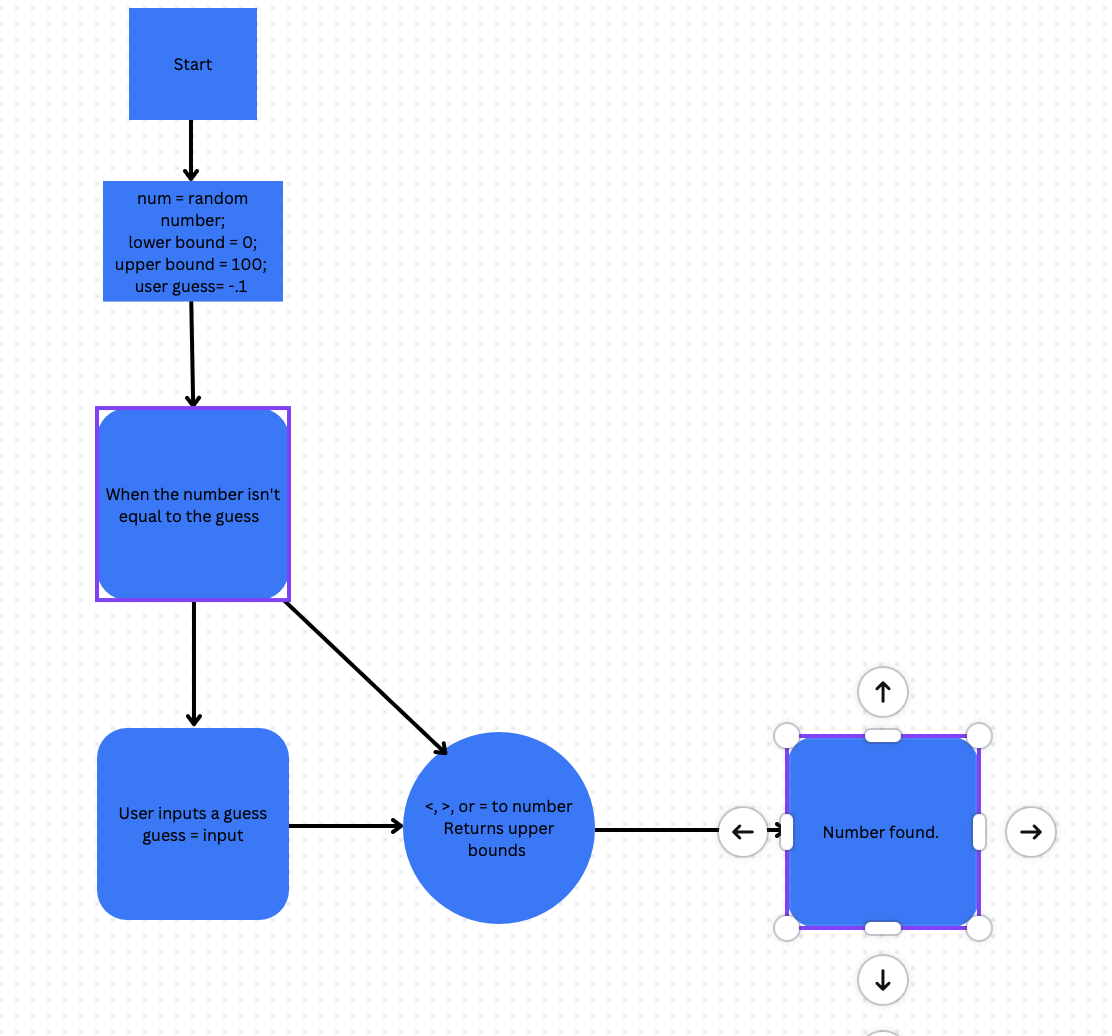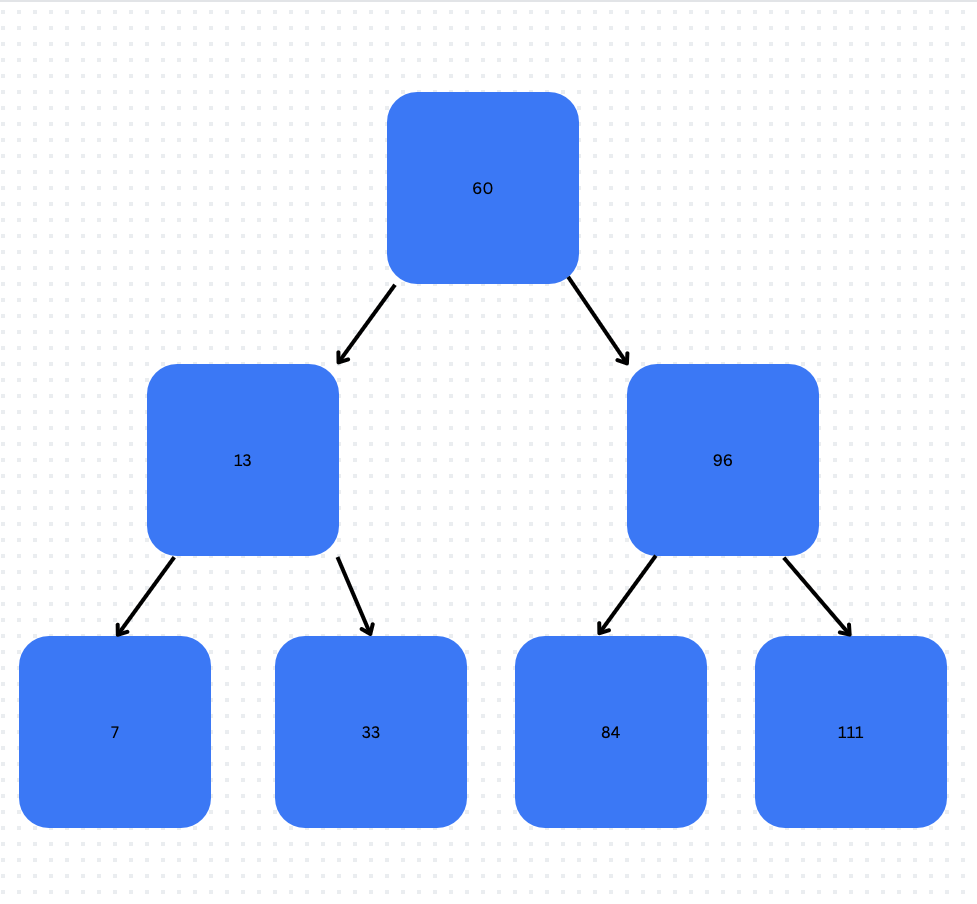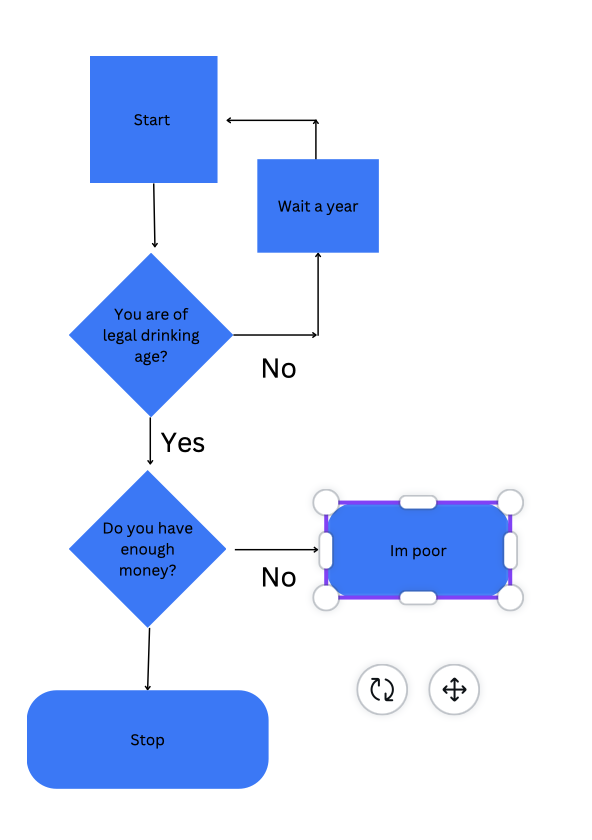3.9 and 3.11 Deveoping Algorithms/Binary Search
HW 5
isRaining = True
isSunny = False
#If Statements
if isRaining == True:
print("Get an umbrella for the walk")
else:
print("Go on a Walk")
if isSunny == True:
print("Go on a walk :)")
isRaining = False
isSunny = True
# Setting Var
goforWalk = isRaining or not(isSunny)
# If statements
if goforWalk == False:
print("don't walk")
else:
print("go for a walk")
age = 17
money = 4
#When they are under age they wait a year until they are over
while age <= 20:
age = age + 1
print(age)
if age >= 21:
if money >= 3.99:
print("Here is your Drink")
#if they don't have enough money they will say they are poor
else:
print("im poor")
import random
#sets variables for the game
num_guesses = 0
user_guess = 0
upper_bound = 100
lower_bound = 0
#generates a random number
number = random.randint(1,100)
# print(number) #for testing purposes
print(number)
print("I'm thinking of a number between 1 and 100.")
#Write a function that gets a guess from the user using input()
def guess():
g = int(input("Choose a number"))
return g #add something here
#Change the print statements to give feedback on whether the player guessed too high or too low
def search(number, guess):
global lower_bound, upper_bound
if guess < number:
print("Higher, your getting there") #change this
lower_bound = guess
elif guess > number:
print("Lower, your getting closer") #change this
upper_bound = guess
return lower_bound, upper_bound
while user_guess != number:
user_guess = guess()
num_guesses += 1
print(f"You guessed {user_guess}.")
lower_bound, upper_bound = search(number, user_guess)
print(f"Guess a number between {lower_bound} and {upper_bound}.")
print(f"You guessed the number in {num_guesses} guesses!")




numlist1 = [12, 14, 43, 57, 79, 80, 99]
numlist2 = [92, 43, 74, 66, 30, 12, 1]
numlist3 = [7, 13, 96, 111, 33, 84, 60]
def middle(x):
y = (7+1)/2
middle = x[int(y)]
return middle
x = numlist1
print(middle(x))
- The Second number would be looked at more because binary starts at 1
- [3, 2, 8, 12, 99] can not be searched because the order of the numbers is not perfect
